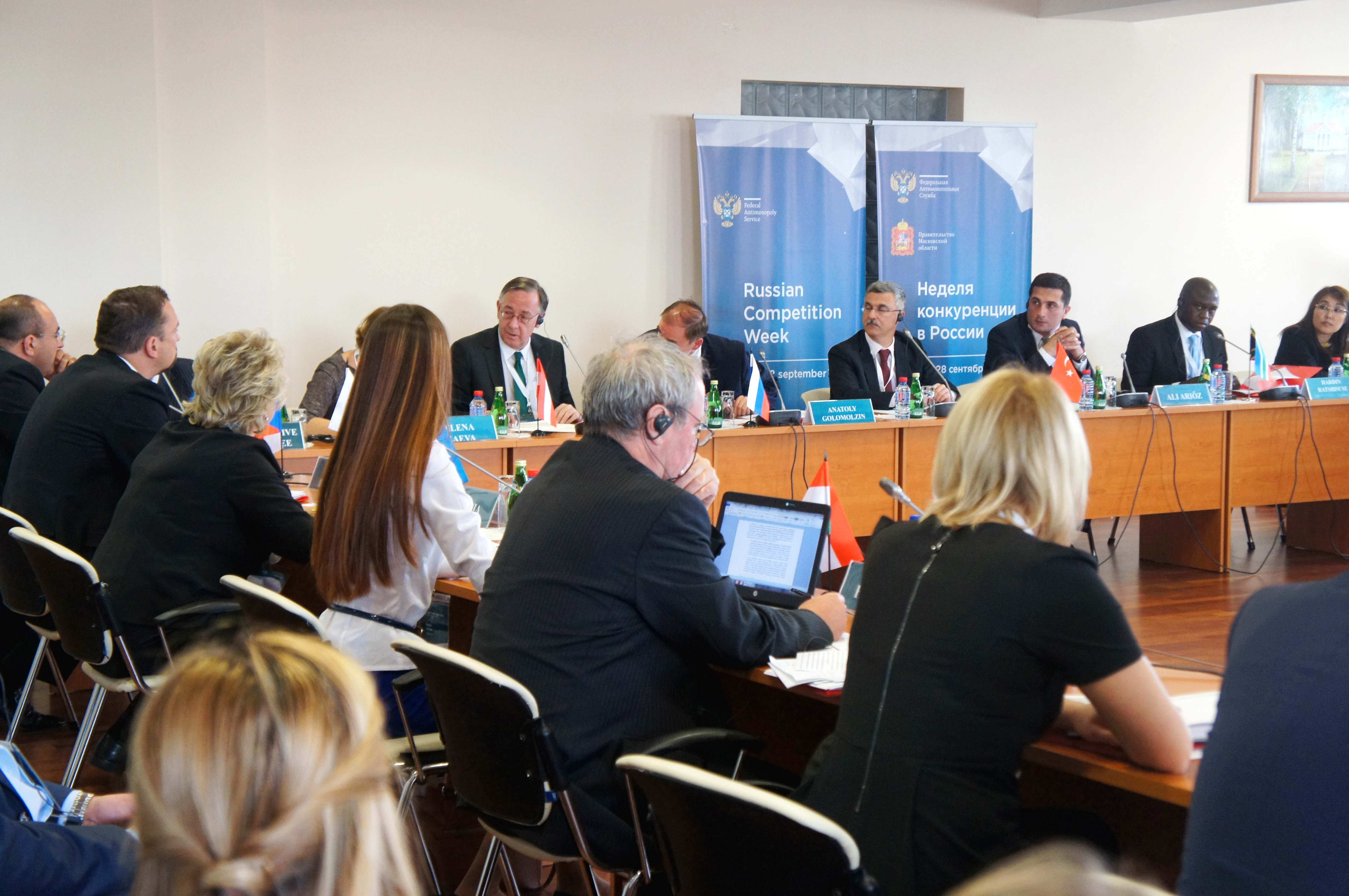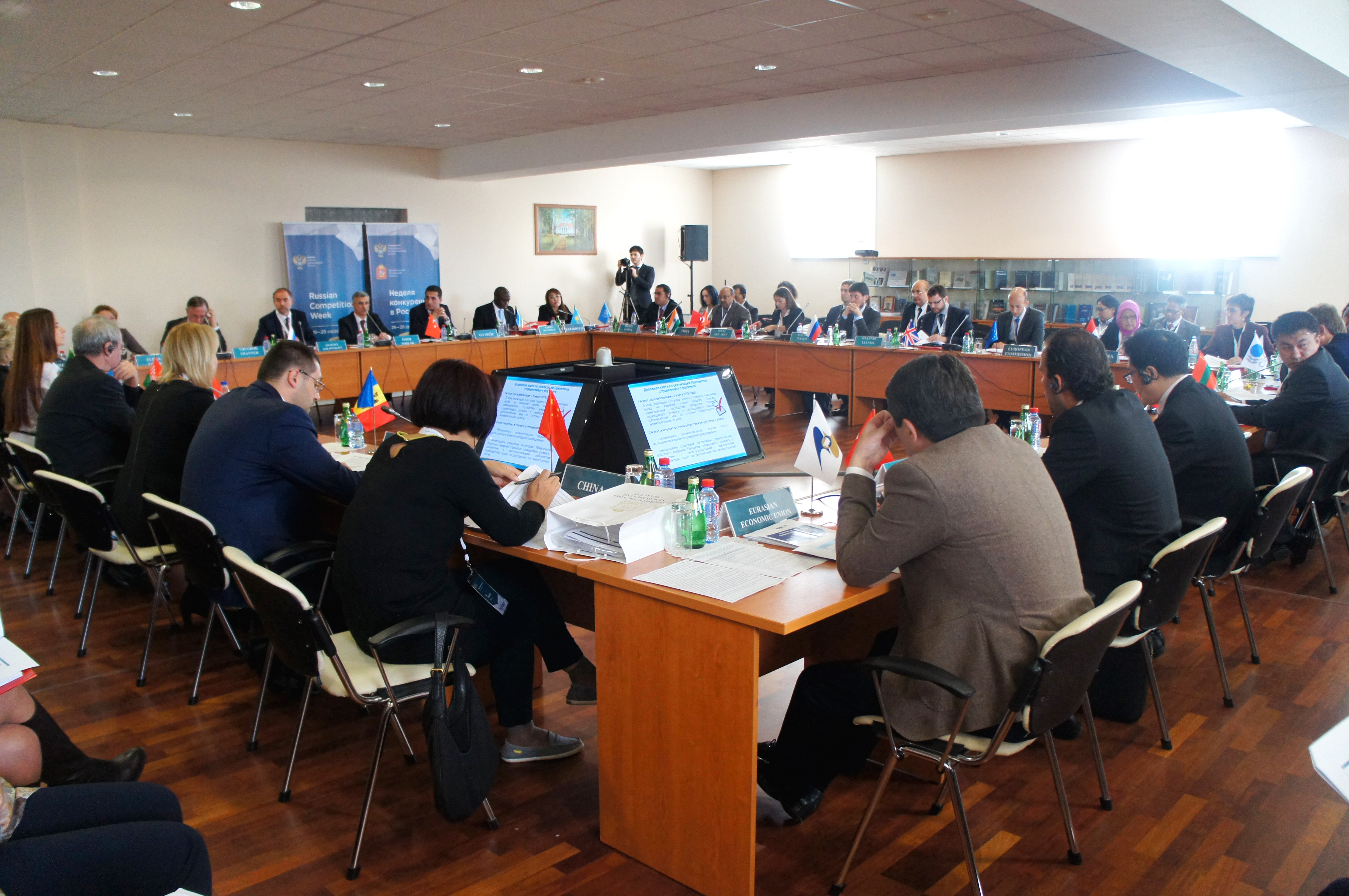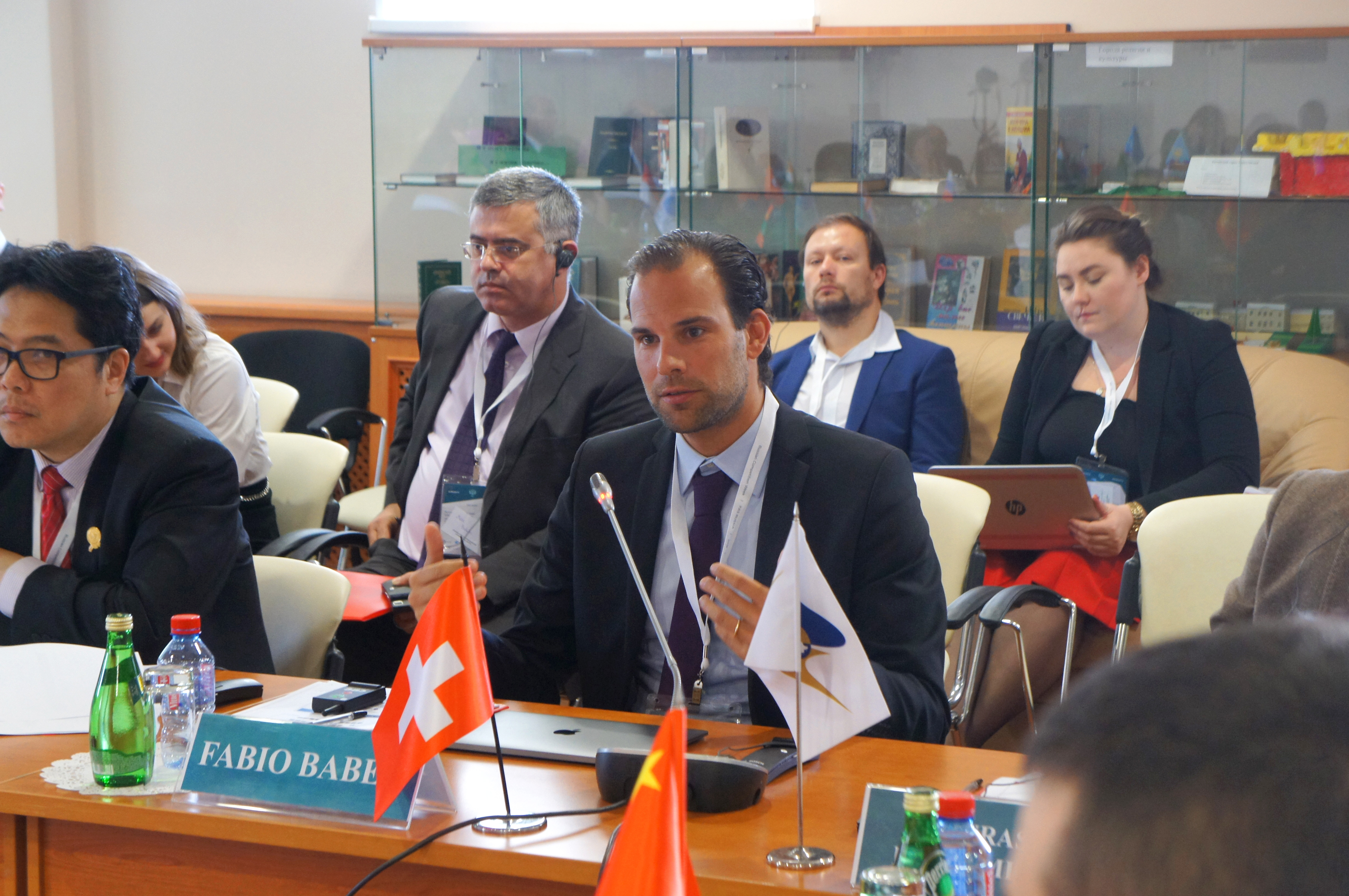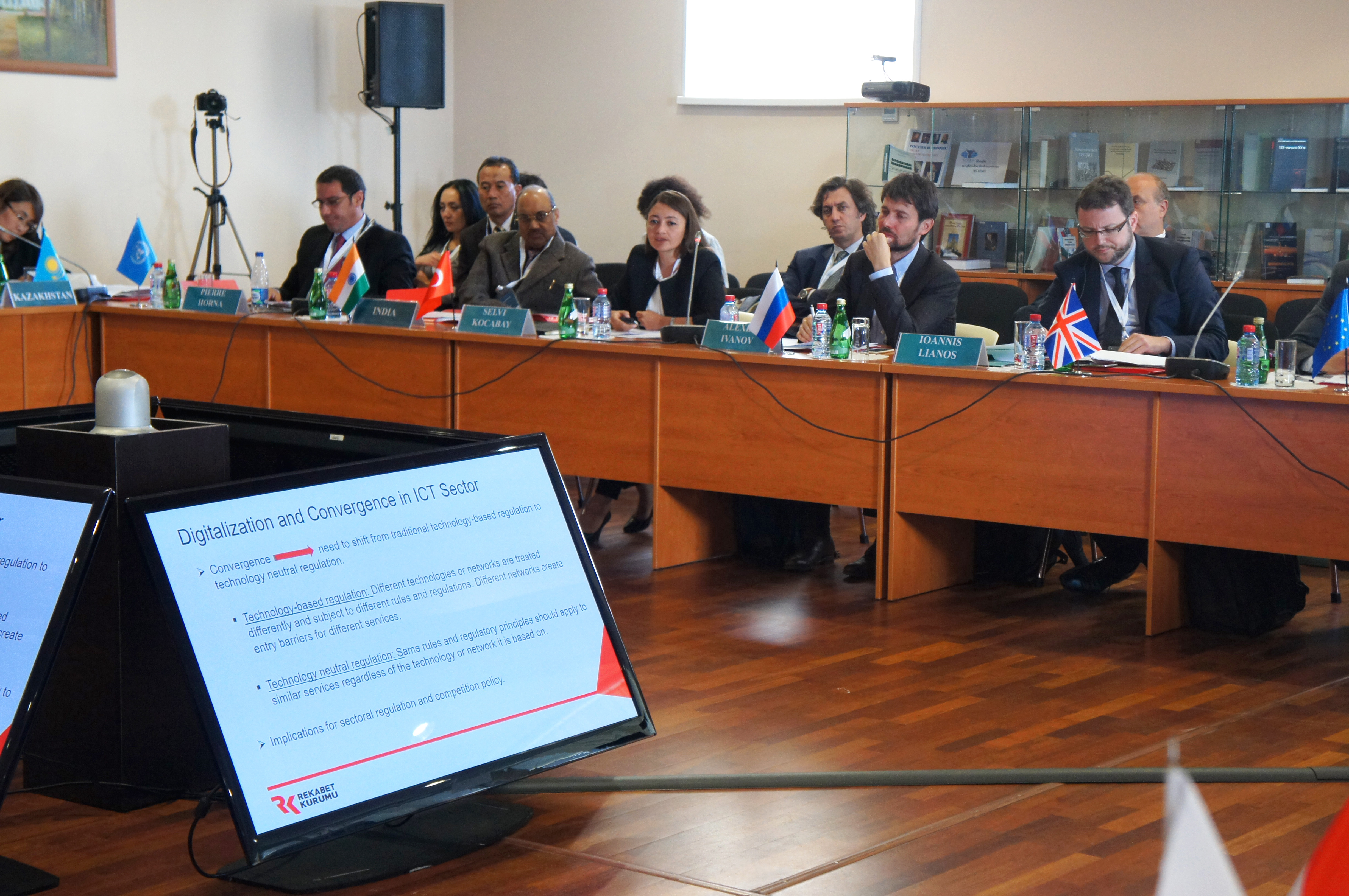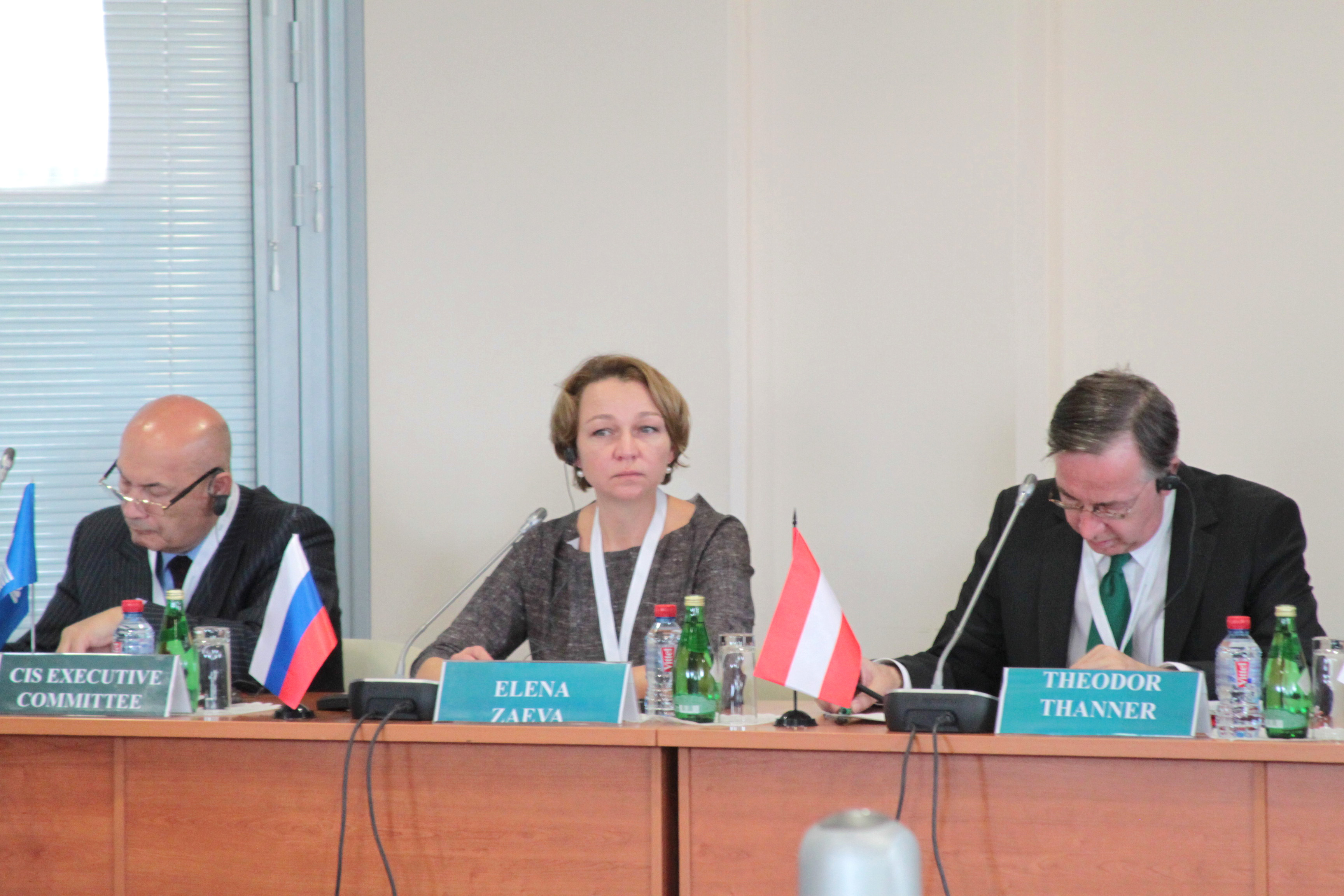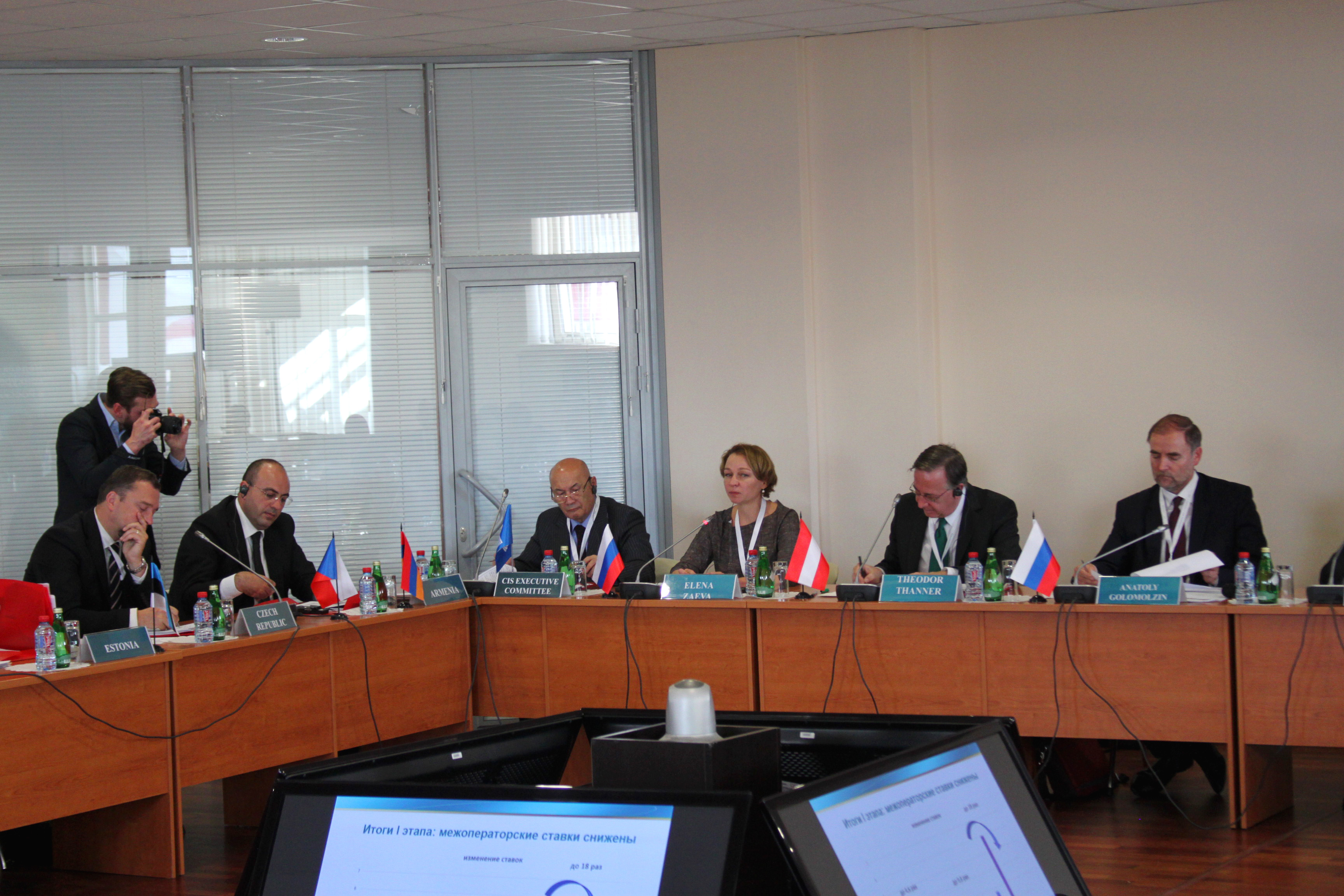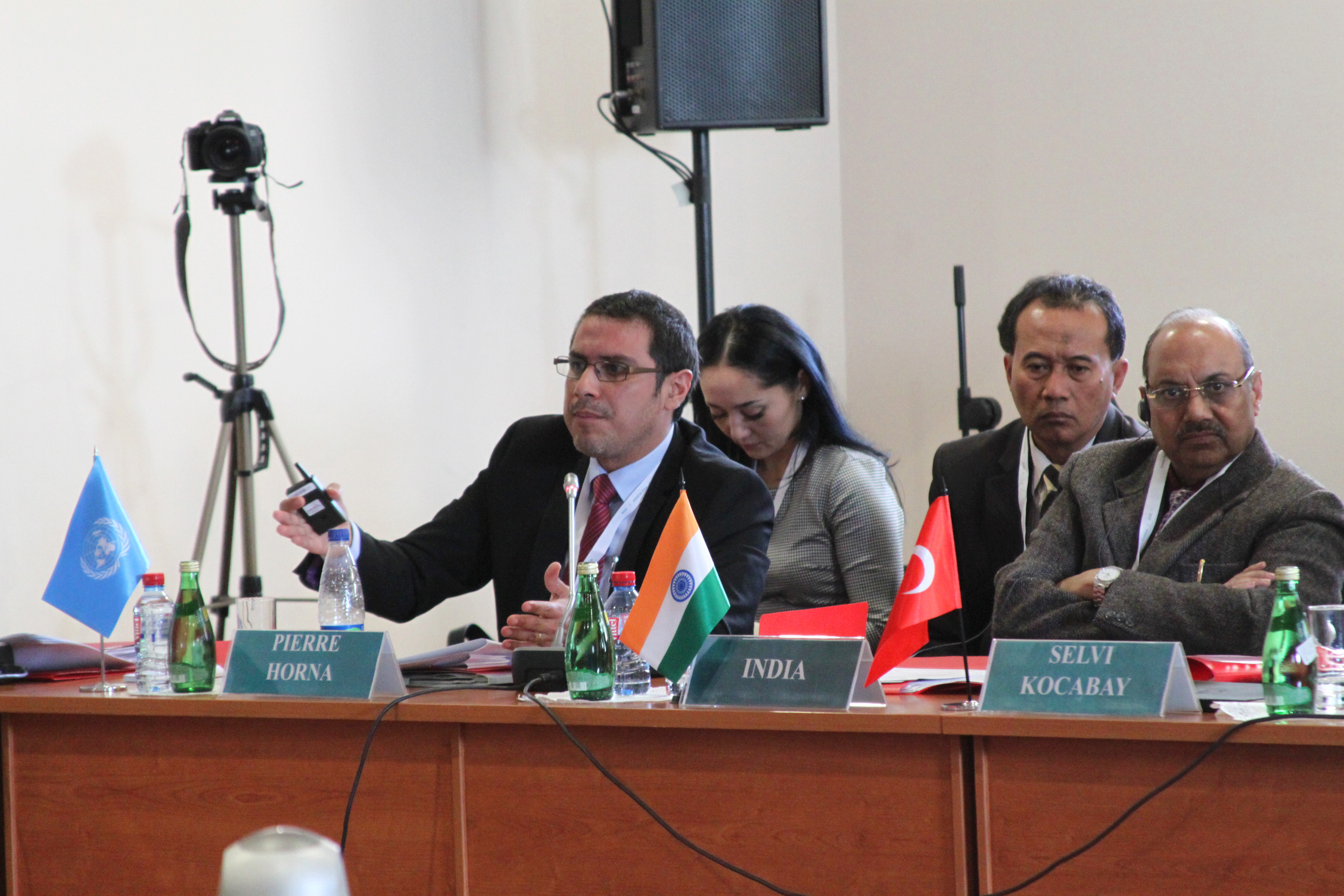Issues of roaming and Internet regulation in the digital economy were discussed at the Russian Competition Week
The 7th session of the Working Group on Research of Competition Issues in the Market of International Telecommunications (Roaming) and the Headquarters for Joint Investigations of the Violations of the Antimonopoly Legislation in the CIS Countries took place on 26 September.
Since 2012 the competition authorities and industry regulators are actively involved in the efforts of the Working Group formed upon an initiative of the Federal Antimonopoly Service (FAS Russia).
The welcoming address was given by the Working Group Co-Chairs – the President of the Turkish Competition Authority, Omer Torlak, and Deputy Head of FAS Anatoly Golomolzin.
“The main principles of cooperation between regulators and providers that determine the tariff-reduction conditions were formalized at the previous meetings. The “Road Map” for reducing roaming tariffs and developing competition is drafted. The Working group devised and implemented the Fair Roaming Principles that specify the basic tariff-setting”, reminded Anatoly Golomolzin.
Then the Head of FAS Department for Regulating Communications and Information Technologies, Elena Zaeva, informed how in the course of active cooperation the antimonopoly bodies, members of the Working Group and operators are undertaking systematic efforts to enforce the Fair Roaming Principles. “At the first stage - from January 2015 to June 2016 – the conditions for roaming partner cooperation were reviewed, inter-operator rates reduced, subscriber tariffs went down and subscribers received special offers on reducing roaming payments”.
Anatoly Golomolzin clarified that in view of a profoundly changing nature of market performance, to achieve the goals and objectives of the Working Group it is necessary to pay attention to the issues influencing expansion of services and products of the Information-and-Communications Technologies (ICT) market, guided by the elaborated principles of technological neutrality and network neutrality.
“Now the subscriber needs are not limited to conversation, SMS-exchange, or e-mails. Services based on various technologies are solidly embedded in the consumption structure that in particular have the functionality of voice information transmission”, emphasized Anatoly Golomolzin. “For instance, many countries are undertaking significant efforts to restrict and terminate fraud. Different fraud-countering methods emerge, providing for complete traffic blocking depending on a counteragent (a calling subscriber) or a type of communications networks, from which a call is initiated / transferred (for example, if a call goes through data transfer networks)”.
Experts discussed expediency of extrapolating the efforts of the Roaming Working group on developing competition in ICT. It should be taken into account that actions on suppressing fraudulent actions with use of telecommunications networks must not lead to prohibiting particular technologies and services, that are pursued by bona fide market participants and give benefits to consumers”, stated Anatoly Golomolzin.
A report in the issue was further given by the President of the Austria Competition Authority, Theodor Tanner. He discussed the findings of surveys conducted by the Austria Competition Authority and on the trends in mobile communications market in Europe.
Deputy Commissioner of the Competition Commission of South African, Hardin Ratshisusu shared the latest roaming trends. He emphasized that “no country alone can solve the problem of expensive roaming. There is need for international cooperation in both policy and the level of regulatory impact”.
The second part of the meeting focused on establishing system-wide approaches to regulating the Internet in the digital economy.
The session was moderated by the Head of the Department of the Turkish Competition Authority on International Relations, Training and Competition Advocacy, Ali Arioz.
He emphasized that “broad dissemination of ICT and, as a consequence, building up information society influences telecommunications markets, establishing new methods of rendering services as well as changing their consumer value. “In this context it is not efficient to consider developing competition exclusively on the telecommunications market without factoring in the entire diversity of services offered to consumers in the field of ICT”.
Anatoly Golomolzin elaborated on the issue in his presentation. Digital economy operates global information flows; therefore, cross-border information flows are important for harmonious and efficient development of all sectors of the economy, and accordingly, the methods of transferring those flows.
Changes in circulation of the ICT-related goods change the existing markets and create the new ones, where useful value is generated through collecting, processing and providing information, including telemetric data: the markets of wholesale and retail trade, insurance, transportation, tourist services and much more.
The value of collecting, processing and visualizing information determined entry of new players on the markets - aggregators (markets of wholesale and retail trade, insurance, education, transportation, tourist services, etc.). Often the same person acts as an “aggregator” in different markets.
“Understanding the global and objective nature of digitalization processes, a system-wide legal strategy should be built up, which would encourage competition on the markets and strengthen competitive abilities of different economies.
For instance, in the past five years, cross-border Internet–commerce in the Russian Federation has increased tenfold (to 219 billion RUB), raising the share of Internet commerce from 8% to 29%. The main factor influencing the growth of cross-border Internet–commerce is popularization of electronic trading platforms (alibaba, eBay)”, explained Anatoly Golomolzin.
Foreign Internet-sellers send their goods to Russian buyers as “goods intended for personal use” “hat enjoy special customs treatment.
Thus, erasing the borders between wholesale and retail trade, between domestic supplies and import give additional advantages to consumers, but at the same time create discriminatory conditions for domestic sellers under the current regulation, which adversely affects competition and in the future can worsen the conditions on domestic markets.
“To give equal conditions for market players, non-discriminatory conditions should be set (tax and customs treatment) for all sellers that sell goods in the Russian Federation. At the same time it is essential to ensure the maximum comfortable conditions for consumers to avoid distorting the incentives for buying in the Internet”, emphasized the speaker.
He also stated that at the stage of establishing new legal relations a systemic regulation should be formed, describing crucial aspects of building up new infrastructures, to ensure efficient market development on the basis of common, reasonable requirements and standards.
The issues of interstate electronic interaction are of utmost importance. We should not only declare acceptance of foreign means of electronic identification but also enable successful interstate technological cooperation. To this purpose, the issues of the architecture of electronic identification and developing e-delivery services should be solved, particularly verifying electronic signature, e-stamp, electronic time marks, e-delivery services and web-site authentication.
Anatoly Golomolzin outlined the typical features and specifics of ICT markets that determine behaviour of market participants and are essential for antimonopoly control. He also gave the highlights of the case against “Google” where FAS took into account all the above aspects conducting market analysis.
Experts discussed step changes in market performance in the digital economy, the main approaches to a system-wide regulation, factoring in market involvement in digital economy and the main criteria for digital markets and specifics of antimonopoly regulation.
A report on this issue was also given by Pierre Horna, a legal affairs officer of UNCTAD Competition and Consumer Policies Branch.
Then a legal adviser to OECD Competition Directorate, Pedro Caro de Sousa presented an evaluation of digitalization advantages for sustainable development and well-being of the population.
Fabio Babi, an associate professor at the School of Management and Law, Zurich University of Applied Sciences, gave a presentation about “Innovations in the media sector: empirical conclusions”. He described some examples of interesting M&A deals.
Next speaker was Aleksey Ivanov, Director of the Institute of Law and Development, High School of Economics — Skolkovo, Director of the Law Policy and Public Development Department, “Skolkovo” Foundation.
The final report was given by Ioannis Lianos, a professor in global competition law and policy at University College London (UCL).
Summing up the meeting, Anatoly Golomolzin suggested reviewing the submitted materials to determine the most important issues.
Participants supported this proposal as well as the proposal put forward by Omer Torlak – to have the next meeting of the Working Group in Turkey.












